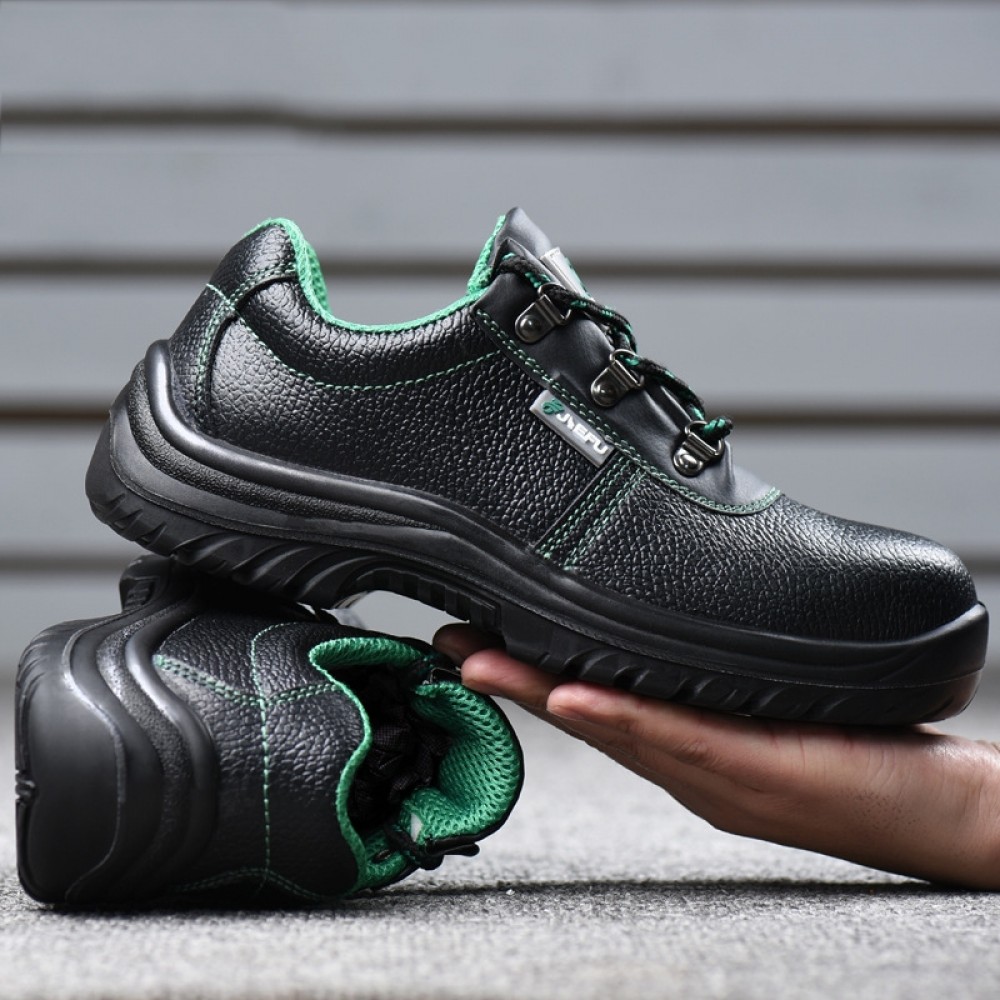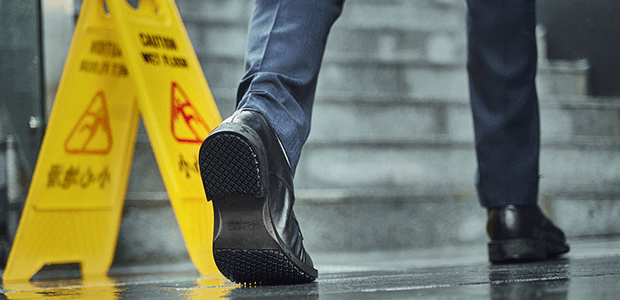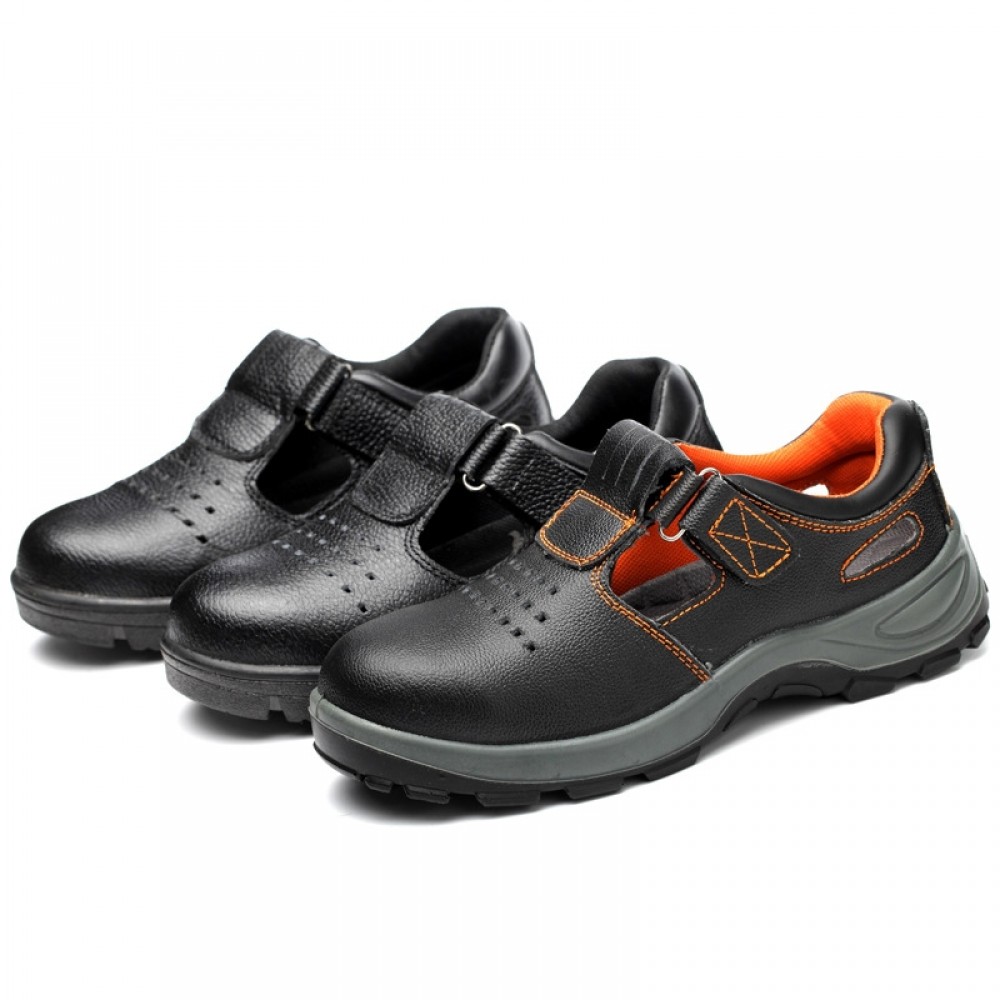Step Up Your Workplace Safety with the Right Footwear
Why Slip-Resistant Shoes Are a Must-Have for Your Job
In the workplace, slips, trips, and falls are a major concern, resulting in thousands of injuries and fatalities every year. According to the Occupational Safety and Health Administration (OSHA), slips, trips, and falls are the leading cause of workplace accidents, accounting for approximately 20-30% of all workplace injuries. Wearing slip-resistant non slip work shoes is a crucial step in preventing these accidents and ensuring a safe working environment. Slip-resistant shoes are designed to provide traction and stability on various surfaces, reducing the risk of slips and falls. By wearing these shoes, workers can significantly decrease their chances of getting injured, which in turn can lead to reduced workers’ compensation claims, medical expenses, and lost productivity. Moreover, slip-resistant shoes can also boost employee morale and job satisfaction, as workers feel more confident and secure in their work environment. In industries where slips and falls are a major hazard, such as construction, healthcare, or food service, wearing slip-resistant shoes is not just a recommendation, but a necessity.
How to Choose the Best Non-Slip Work Shoes for Your Industry
Selecting the right non-slip work shoes for your industry is crucial to ensure a safe and comfortable working environment. Different industries present unique challenges, and it’s essential to choose shoes that cater to these specific needs. For instance, construction workers require shoes with aggressive tread patterns and rugged outsoles to handle rough terrain and heavy materials. In contrast, healthcare professionals need shoes with slip-resistant soles and easy-to-clean surfaces to prevent the spread of infections. Food service workers, on the other hand, require shoes with oil-resistant materials and slip-resistant soles to navigate slippery kitchen floors. When choosing non-slip work shoes, consider factors like terrain, job requirements, and personal comfort. Look for shoes with features like breathable materials, cushioning, and arch support to ensure all-day comfort. Additionally, consider the level of slip resistance required for your industry, as some shoes may offer more aggressive traction than others. By selecting the right non-slip work shoes for your industry, you can reduce the risk of slips, trips, and falls, and create a safer, more productive work environment. Remember, investing in high-quality slip resistant non slip work shoes is an investment in your safety and well-being.
Top-Rated Slip-Resistant Work Shoes for Men and Women
When it comes to selecting the best slip-resistant work shoes, there are numerous options available in the market. To help you make an informed decision, we’ve reviewed and compared top-rated slip-resistant work shoes from renowned brands like Dr. Martens, Timberland, and New Balance. Dr. Martens’ Ironbridge line offers exceptional slip resistance and durability, making them an ideal choice for construction and manufacturing workers. Timberland’s PRO series features a unique tread pattern that provides excellent traction on slippery surfaces, making them suitable for food service and healthcare professionals. New Balance’s 626v2 model boasts a slip-resistant outsole and a comfortable, breathable design, making them perfect for workers who require a combination of style and functionality. When choosing the right slip-resistant work shoes, consider factors like job requirements, terrain, and personal comfort. Look for shoes with features like cushioning, arch support, and breathable materials to ensure all-day comfort. By investing in high-quality slip resistant non slip work shoes, you can reduce the risk of slips, trips, and falls, and create a safer, more productive work environment. Whether you’re working in construction, healthcare, or food service, there’s a top-rated slip-resistant work shoe that’s right for you.
The Science Behind Slip-Resistant Technology
Slip-resistant technology is a critical component of non-slip work shoes, and understanding how it works can help you make an informed decision when selecting the right footwear for your job. The secret to slip-resistant soles lies in the materials used, tread patterns, and other design features that provide traction on slippery surfaces. One of the most common materials used in slip-resistant soles is rubber, which provides excellent grip on wet and oily surfaces. Some manufacturers also use advanced materials like polyurethane and polyvinyl chloride (PVC) to create soles with improved slip resistance. Tread patterns also play a crucial role in slip-resistant technology. Deep grooves and lugs on the sole help to channel liquids away from the foot, reducing the risk of slipping. Additionally, some slip-resistant shoes feature unique design features like flex grooves, which allow the sole to flex and adapt to different surfaces. When combined with breathable materials, cushioning, and arch support, slip-resistant technology can provide unparalleled comfort and protection in the workplace. By investing in high-quality slip resistant non slip work shoes, you can reduce the risk of slips, trips, and falls, and create a safer, more productive work environment. Whether you’re working in construction, healthcare, or food service, understanding the science behind slip-resistant technology can help you make an informed decision when selecting the right footwear for your job.
Slip-Resistant vs. Slip-Proof: What’s the Difference?
When it comes to selecting the right footwear for your job, it’s essential to understand the difference between slip-resistant and slip-proof shoes. While both types of shoes are designed to provide traction on slippery surfaces, they serve distinct purposes and are suited for different work environments. Slip-resistant shoes are designed to reduce the risk of slips, trips, and falls by providing improved traction on surfaces that are wet, oily, or uneven. They are ideal for workers in industries such as construction, healthcare, and food service, where slippery surfaces are a common hazard. On the other hand, slip-proof shoes are designed to provide complete protection against slipping, even on extremely hazardous surfaces. They are typically used in high-risk industries such as oil rigs, chemical plants, and other environments where the consequences of a slip or fall can be catastrophic. When choosing between slip-resistant and slip-proof shoes, consider the specific hazards of your job and the level of protection you need. By selecting the right type of shoe for your work environment, you can reduce the risk of accidents and create a safer, more productive workplace. Whether you’re looking for slip-resistant non slip work shoes or slip-proof shoes, understanding the difference between these two types of footwear can help you make an informed decision and stay safe on the job.
Comfort and Style: Finding the Perfect Balance
When it comes to slip-resistant non slip work shoes, comfort and style are often overlooked in favor of functionality. However, a comfortable and stylish pair of shoes can make a significant difference in your overall job satisfaction and performance. Slip-resistant shoes that prioritize comfort can help reduce fatigue and discomfort, allowing you to focus on your work without distractions. Features like cushioning, arch support, and breathable materials can provide long-lasting comfort and support, even during extended periods of wear. Moreover, stylish slip-resistant shoes can boost your confidence and professionalism, making you feel more prepared and capable on the job. Fortunately, many modern slip-resistant non slip work shoes combine comfort and style with advanced slip-resistant technology, providing the perfect balance for workers in various industries. By prioritizing comfort and style in your slip-resistant work shoes, you can create a more enjoyable and productive work environment. Whether you’re working in construction, healthcare, or food service, there’s a pair of slip-resistant non slip work shoes that can meet your unique needs and preferences.
Slip-Resistant Work Shoes for Specific Hazards: Oil, Water, and More
In addition to providing general slip resistance, some work shoes are designed to address specific hazards found in various industries. For example, oil-resistant shoes are a must-have for mechanics and workers in the automotive industry, where oil spills and slippery surfaces are common. These shoes feature specialized soles that are resistant to oil and other petroleum-based substances, providing superior traction and stability. Similarly, water-resistant shoes are essential for workers in the fishing industry, where wet and slippery surfaces can be deadly. These shoes often feature waterproof membranes and drainage systems to keep feet dry and comfortable. Other specialized slip-resistant non slip work shoes include those designed for workers in the chemical industry, where hazardous materials can pose a significant risk. These shoes may feature advanced materials and design features that provide protection against corrosive substances and other hazards. By investing in slip-resistant work shoes that are specifically designed for your industry and job requirements, you can significantly reduce the risk of accidents and injuries, and create a safer, more productive work environment.
Investing in Your Safety: The Long-Term Benefits of Slip-Resistant Work Shoes
While the initial investment in slip-resistant non slip work shoes may seem significant, the long-term benefits far outweigh the costs. By wearing high-quality slip-resistant work shoes, workers can significantly reduce the risk of injuries and accidents, which can lead to increased productivity and improved job satisfaction. In fact, studies have shown that slip-resistant work shoes can reduce the incidence of slips, trips, and falls by up to 50%. This can result in significant cost savings for employers, who can avoid the financial burdens of workers’ compensation claims and lost productivity. Furthermore, slip-resistant work shoes can also improve worker morale and confidence, leading to a more positive and productive work environment. By investing in slip-resistant non slip work shoes, workers and employers can create a safer, more efficient, and more profitable workplace. With the right footwear, workers can focus on their tasks with confidence, knowing that their feet are protected from the hazards of the job.








